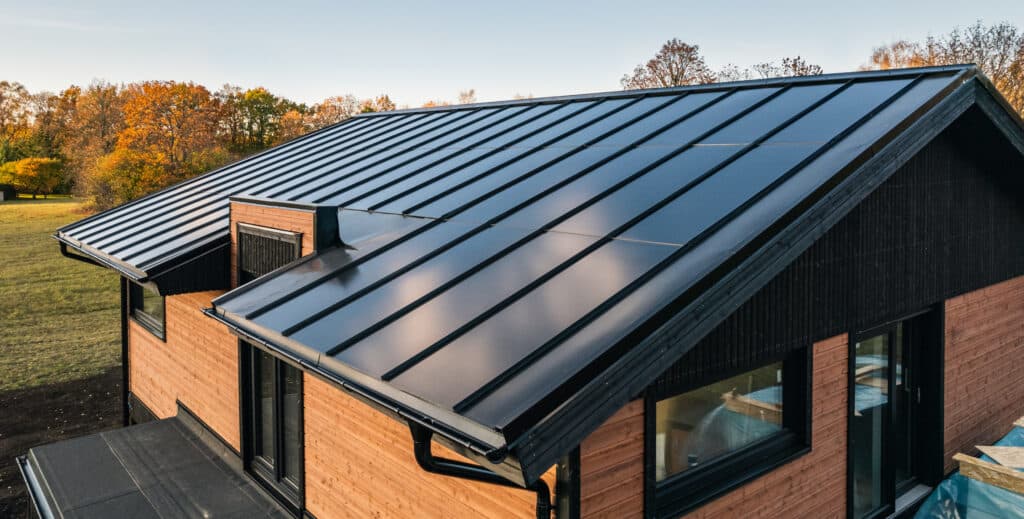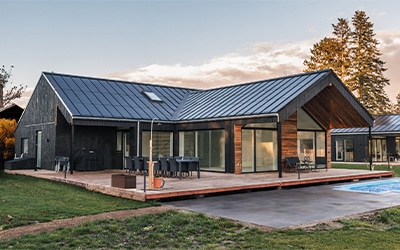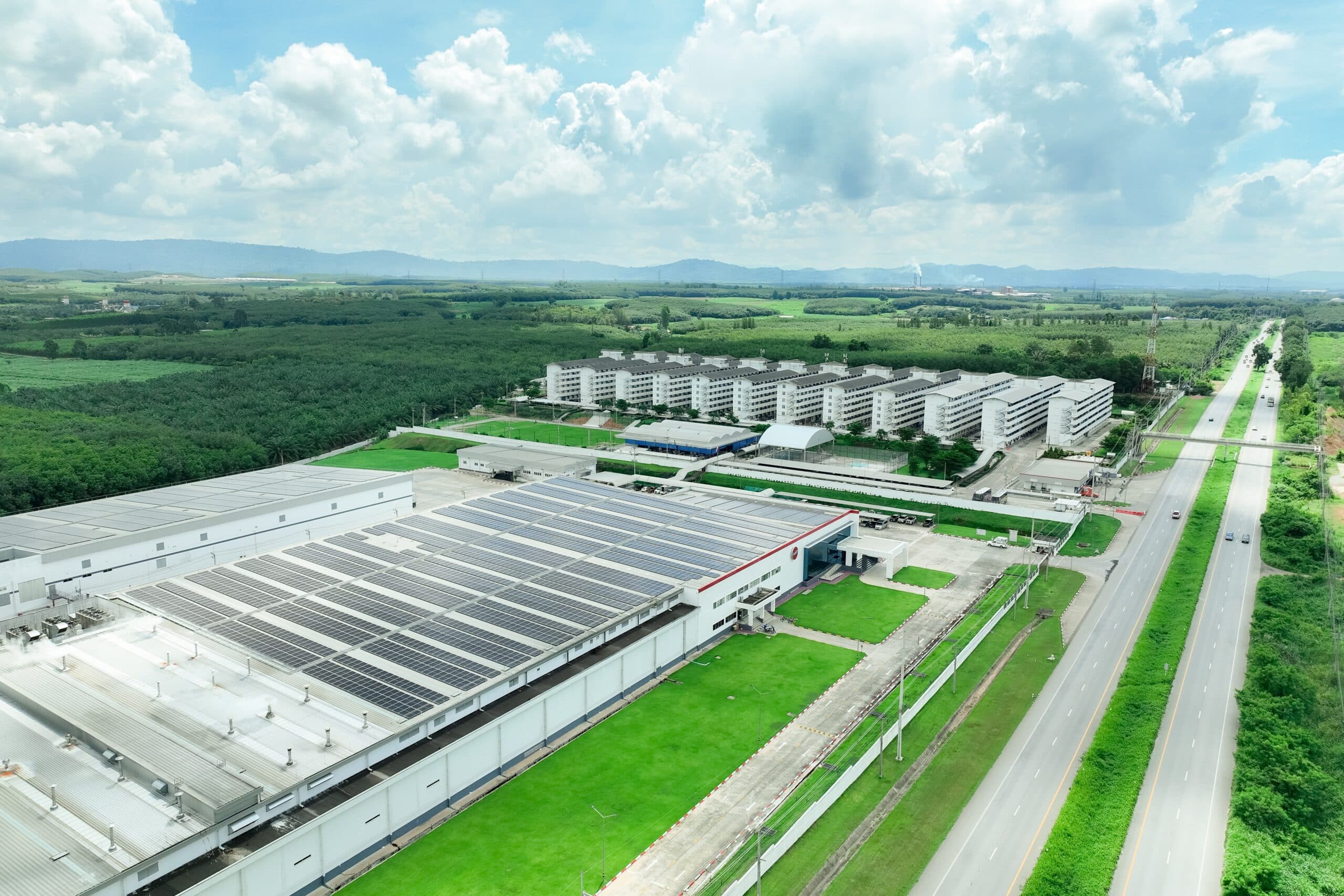With more homeowners across the UK choosing low-carbon alternatives to heat their homes, air source heat pumps are front and centre in the energy conversation. But as with any big investment, it’s smart to weigh up the air source heat pump pros and cons.
Whether you’re navigating heat pump grants, wondering how noisy they really are, or curious about how they stack up on cold British mornings, we’re here to clear the fog. This is your guide to the real pros and cons of air source heat pumps – written for UK homes, and tailored to help you make the best decision for your property, your budget, and your carbon footprint.
Air Source Heat Pump Pros and Cons Guide Contents:
- How do air source heat pumps work?
- Air source heat pump advantages
- Cost efficiency
- Energy efficiency
- Air source heat pump installation ease
- Climate adaptability
- Air source heat pump disadvantages
- Noise pollution
- Space requirements
- Installation costs and maintenance
- Air source heat pump costs
- Air source heat pumps customer reviews
- Smartly Installation
How Do Air Source Heat Pumps Work?
Before we cover the air source heat pump pros and cons, it’s important to understand exactly how they work. Air source heat pumps operate by extracting heat from the outside air and transferring it into your home for efficient heating. These systems work by absorbing heat from the ambient air, even in cold temperatures, and then increasing its temperature through a compressor before distributing it inside your home through a network of ducts or radiators.
The installation process of air source heat pumps involves mounting the unit outside your home, typically on an external wall or the ground. This process requires minimal invasive work compared to other heating systems, making it a quicker and more straightforward installation.
Air Source Heat Pumps Advantages

With their high energy efficiency and cost-saving potential, air source heat pumps are a favourable choice in home heating systems for many reasons:
1. Cost Efficiency
One of the key advantages of air source heat pumps is their cost efficiency. These systems can greatly reduce your heating bills by drawing in heat from the outside air, even in cold temperatures. They offer environmental benefits by producing lower carbon emissions compared to traditional heating systems, helping you reduce your carbon footprint. In terms of energy savings, air source heat pumps excel at providing consistent warmth while consuming less electricity.
2. Energy Efficiency
Energy efficiency is another one. Air source heat pumps use renewable energy sources to provide heating and cooling for residential spaces. By transferring heat rather than generating it through combustion, air source heat pumps can achieve high levels of efficiency, converting a single unit of electricity into multiple units of heat energy.
This efficient operation not only lowers energy consumption but also contributes to a more sustainable environment by reducing greenhouse gas emissions.
3. Ease Of Air Source Heat Pump Installation
The installation process for air source heat pumps is relatively straightforward, making it a convenient option for homeowners looking to upgrade their heating systems. Unlike ground-source heat pumps, which require excavation and installation of underground piping, air source heat pumps can be installed quickly and with minimal disruption to the property.
The outdoor unit of an air source heat pump can typically be mounted on a wall or placed on the ground. This can save time and reduce the overall cost of installation.
4. Ability To Operate In A Variety Of Climates
The ability to operate effectively in a variety of climates is a significant advantage for homeowners. These pumps are designed for use in a wide range of climates. Advancements in technology have made modern air source heat pumps increasingly capable of maintaining optimal performance even in subzero temperatures. This means you can rely on them to provide consistent comfort all year round, regardless of weather conditions. Check out our blog here about ASHP’s in Winter.
Air Source Heat Pumps Disadvantages

Despite their numerous advantages, air source heat pumps do have some drawbacks that you should be mindful of. These include:
1. Noise Pollution
Another downside to take into account is noise pollution. Air source heat pumps can generate noise during operation, which could be a concern for some homeowners, particularly if the outdoor unit is placed near bedrooms or living areas.
The noise generated by the outdoor unit can vary depending on factors such as the model, size, and location of the unit. While modern air source heat pumps are designed to operate quietly, some units may produce noticeable noise levels, particularly during periods of high demand or when the system is operating at maximum capacity.
Yes, air source heat pumps do make noise – but it’s not as disruptive as you might think.
A well-installed unit typically produces between 40 and 60 decibels, roughly the same as a quiet conversation or a fridge. Most homeowners report the noise as noticeable but not intrusive, especially when placed away from bedroom windows or social spaces.
Under UK planning guidelines, outdoor heat pumps must meet strict noise thresholds – especially in residential areas. At Smartly, we always factor this in during design to keep you compliant and comfortable.
2. Space Requirements
Unlike some other heating systems that may have minimal impact on indoor space, air source heat pumps need adequate outdoor space for installation.
This outdoor unit, which houses components such as the compressor and fan, needs to be placed in a location that allows for proper airflow and efficient operation. Local regulations or zoning ordinances may dictate specific setback requirements or placement restrictions for outdoor units. Therefore, this is another drawback worth considering.
3. Installation Costs & Maintenance
Installation costs are also a factor to bear in mind. While air source heat pumps are generally less expensive to install than ground source heat pumps, they can still represent a significant payment for third-party installation.
Maintenance requirements for air source heat pumps are relatively low, but they still need regular servicing to make sure they operate efficiently. This can add to the overall cost of owning and operating an air source heat pump.
How Much Are Air Source Heat Pumps?
In the midst of air source heat pump pros and cons, it’s clear that a huge consideration is price.
Considering the various factors involved, the cost of air source heat pumps can vary considerably. When looking at cost comparison, air source heat pumps are generally more affordable to purchase and install compared to ground source heat pumps.
Before making a decision, get quotes from different suppliers and consider the long-term energy savings to determine if an air source heat pump is the right choice for your home. You’ll also want to consider external devices like battery storage or Roofit standing seam roofs for storing excess power. Air Source Heat pumps are just one element of a renewable, Smartly Home.
Air Source Heat Pumps Customer Reviews
Air source heat pump pros and cons mean nothing without real reviews to bac them up. Before investing in an air source heat pump, it’s crucial to consider customer reviews on trusted renewable energy suppliers. This will gain valuable insights into the performance, reliability, and overall satisfaction of the product.
Customer reviews offer firsthand accounts of real-world experiences, providing prospective buyers like yourself with a clearer understanding of what to expect from a particular heat pump model or brand.
Positive reviews can give you a little confidence in the quality and effectiveness of a heat pump, reassuring buyers that they are making a sound investment for their home.
Visit Smartly For Air Source Heat Pump Solutions
Now that we’ve covered the air source heat pump pros and cons, you may be thinking about installation. When choosing a provider, take into account factors such as their experience, customer reviews, and certifications to guarantee a smooth installation process. At Smartly, we’re well-versed in renewable energy solutions and are committed to assisting people in achieving sustainable home power and heating.
We’re proud to offer installation services for Ecodan Mitsubishi heat pumps, which are known for their efficiency for both residential homes and small commercial spaces. These heat pumps feature a compact outdoor unit discreetly placed outside your home, utilising ambient warmth to power radiators, underfloor heating, and instant hot water. Control options for your Mitsubishi ASHP are user-friendly, including the MELCloud app for remote management and performance monitoring.
Contact us today, and we’ll start the journey for you. Our team conducts careful research to determine the optimal solution for your home, considering available space and energy consumption. We provide insight into heat pump running costs, allowing you to make informed decisions about the most suitable option for your needs.



